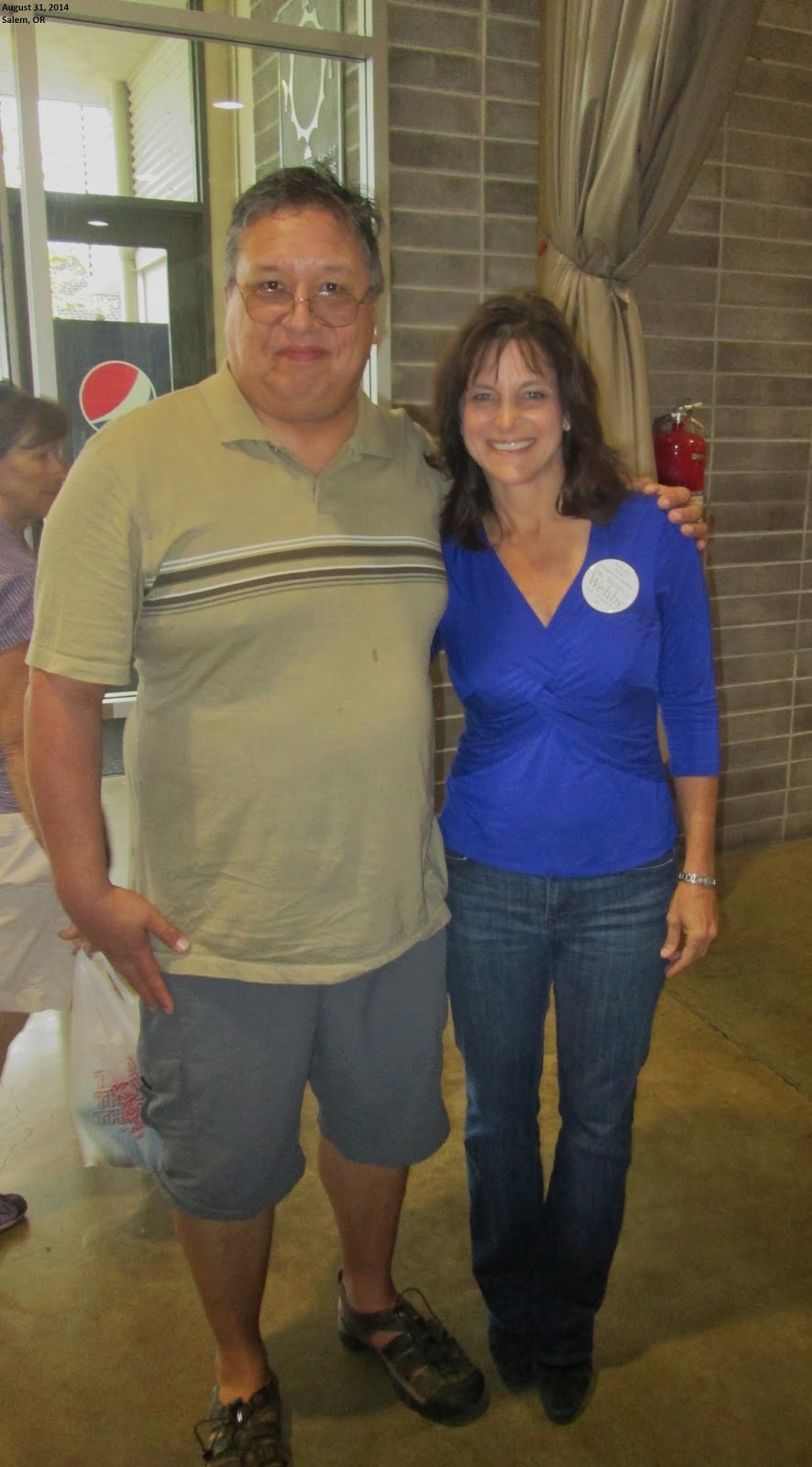On this, the last day but one of the
hottest summer on record, Portland hit 90 degrees Fahrenheit for the twenty-first time this calendar year. A fitting day for the event I reluctantly attended this afternoon: the People's Climate March.
 |
| Sticking to the shade |
Reluctantly, you ask? Well, yes, I'm afraid so. For reasons that I'll relate forthwith. But first, let me describe what I found when I hopped the old
Bus #14 (with a stop just outside my front door) and rode down to Waterfront Park.
 |
| Temperatures were near 90F |
The event was a demonstration for progress on limiting carbon emissions, on reversing the economic trends that threaten to fundamentally change the weather patterns and climate of our planet. A noble and worthwhile goal.
My hopes for turnout were buoyed by the number of demonstrators that boarded the bus as we neared downtown. In fact, all seats were occupied, and many folks had to stand. Senior citizens, families with children, hippies, hipsters, church folks, labor unions --all were represented.
I conversed with a woman a few years younger than me, named Angela. She was on her way to the demonstration with her tween-aged daughter.
"Looks like we might have a good turnout," Angela said, glancing around the bus at the people with their placards and their noise-makers.
"Yeah," I said. "I hope so. But I've got to tell you, I don't know if these
demonstrations do much good. I remember when we had the massive demonstrations against the Bush administration and the
illegal Iraq invasion. We came out in our millions and--"
"--it didn't make any difference," she finished, nodding glumly. But then she brightened. "These events are good for community building though."
"True," I admitted. "And it's encouraging to gather with other like-minded people. You feel less isolated."
On this we agreed.
The crowd at Waterfront was sizable, but not huge. It was such a hot day and the sun so merciless that people clustered in the shade patches afforded by the trees along the walkway and the stretched shadows of the high-rise hotels across the street. The crowd on the swathes of sun-beaten grass closer to the river was spottier.
I was disappointed. Reports had it that, on the other side of the country, in Manhattan, the climate march attracted 300,000-plus. Portland, of course, can't expect to match the crowds in the Big Apple, but we are still the feisty Rose City, whom
Bush the Elder named the "Beirut of North America." I felt we could have done better.
 |
| Governor Kitzhaber addresses the crowd |
But then again, maybe there are other Portlanders who share my resignation, my sense of futility.
Which gets to the reason I was reluctant to attend.
 |
| Clever play on words, madam |
You see, I lost something after Iraq. Or rather, I lost something when the American people failed to punish Bush for Iraq. In spite of our massive demonstrations,
Bush and his coterie were able to pull off the invasion and avoid any accountability. The American people even voted to keep him in office after the fact.
I learned a valuable and bitter lesson from that travesty. It's something that I first encountered when I read Tolstoy's
War and Peace in my college days, and which my experiences since have only served to confirm: Human events, history, social evolution, progress --whatever you choose to call it --operates outside human wishes or desires. War, technology, economic development are phenomena that have lives of their own quite apart from the petty wishes of individuals or even societies.
And that, I suspect is what will determine the fate of humanity as regards climate change. Carbon emissions will rise or fall according to laws that are quite beyond what anyone might want or hope --whether it's the Earth-loving
hippie or the greedy short-sighted Texas
oilman.
 |
| I would've liked to see a better turnout |
"Well, Dade," one might ask, "if you feel that way, why go to the demonstration?"
Because of this: In some far-flung future, if and when there is some entity or society that looks upon our race and
wonders about us --whether we were aware of our doom, whether we were concerned, whether we cared at all --I want to be part of that contingent that registers our capacity for compassion and hope and concern for the people of the future.
That's why I went today. That's why I'll go next time. I'll always go, if I can.
And I'll try to keep smiling. Even while the house burns down.







































